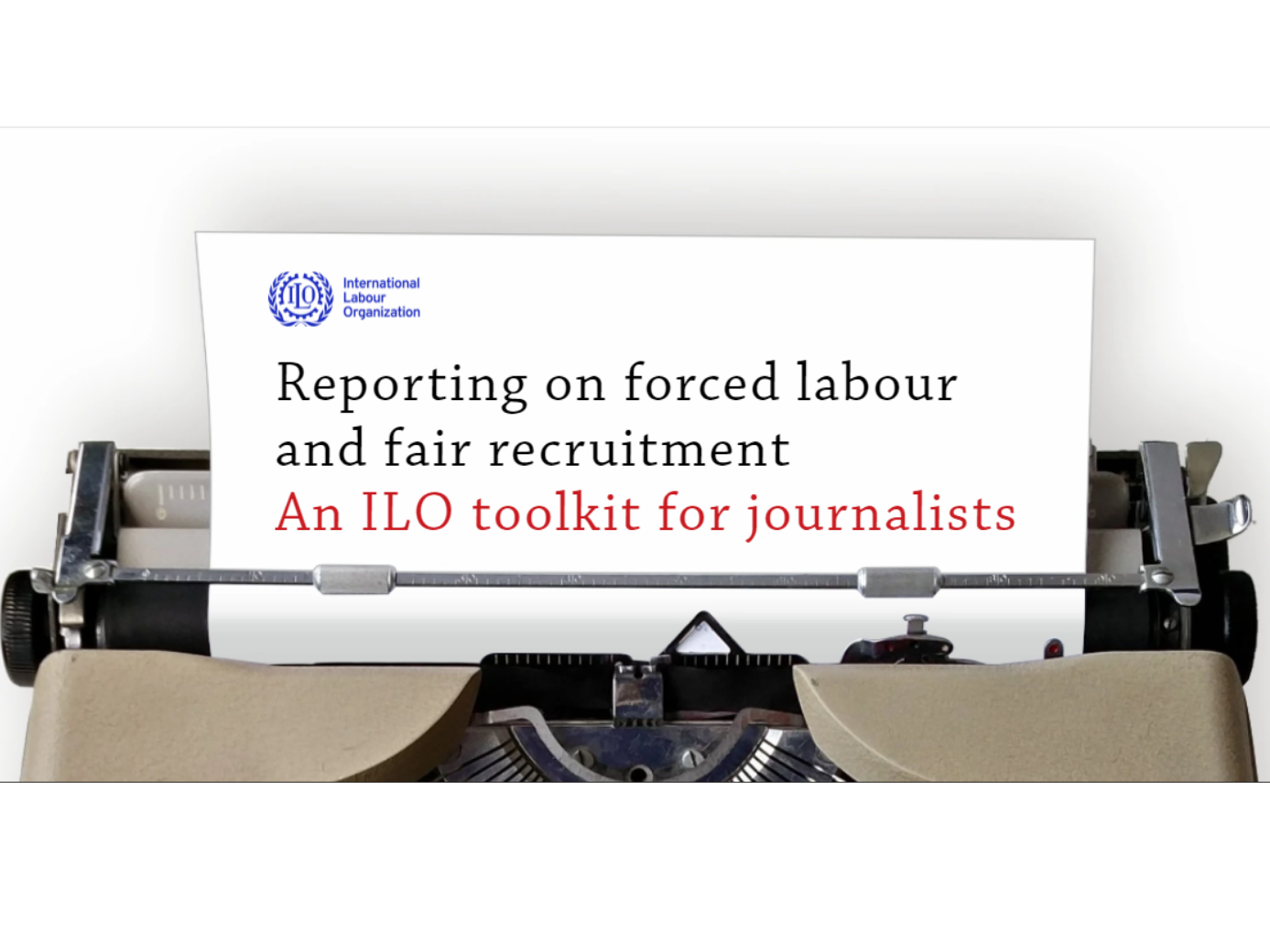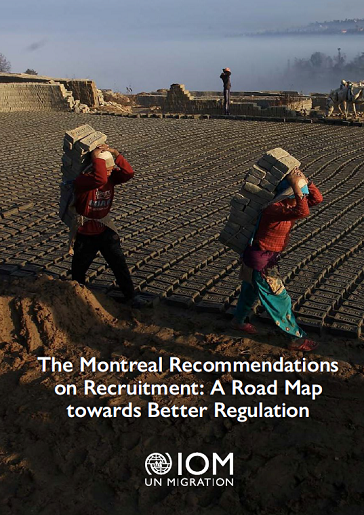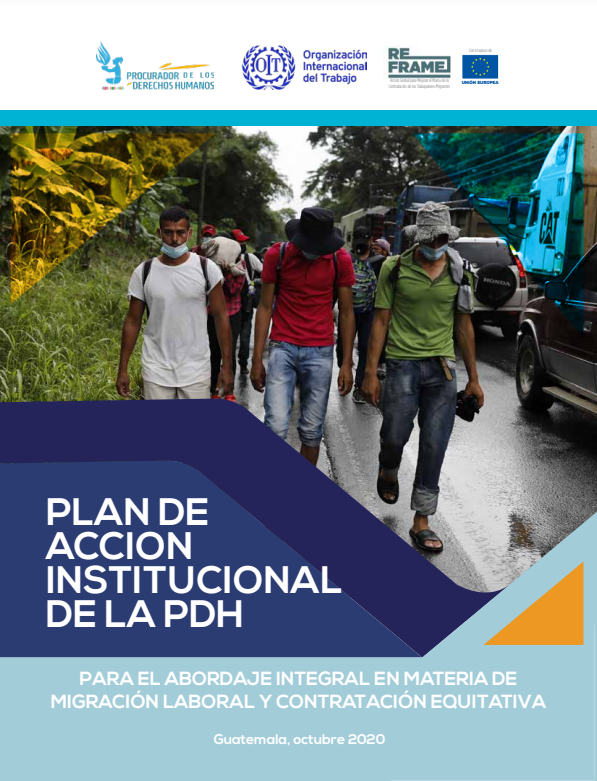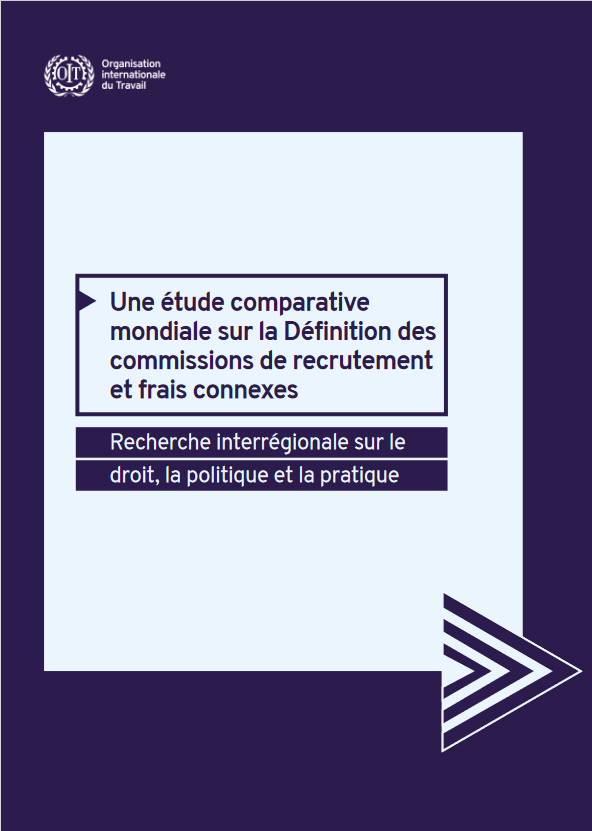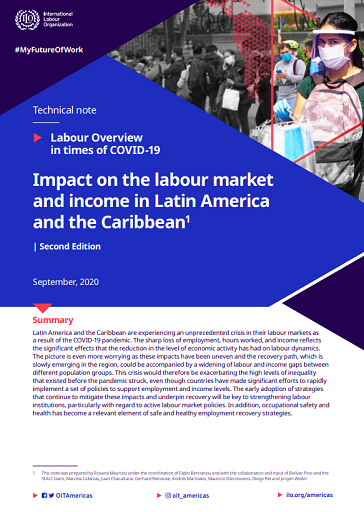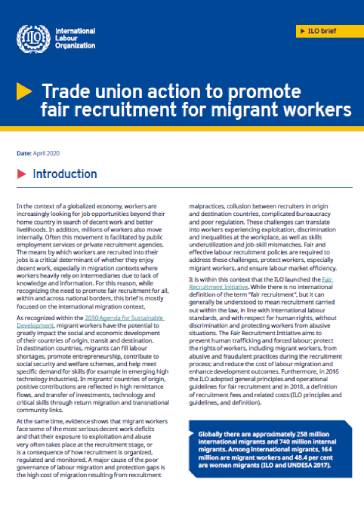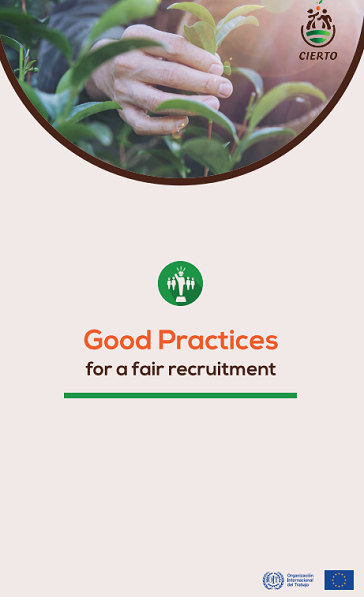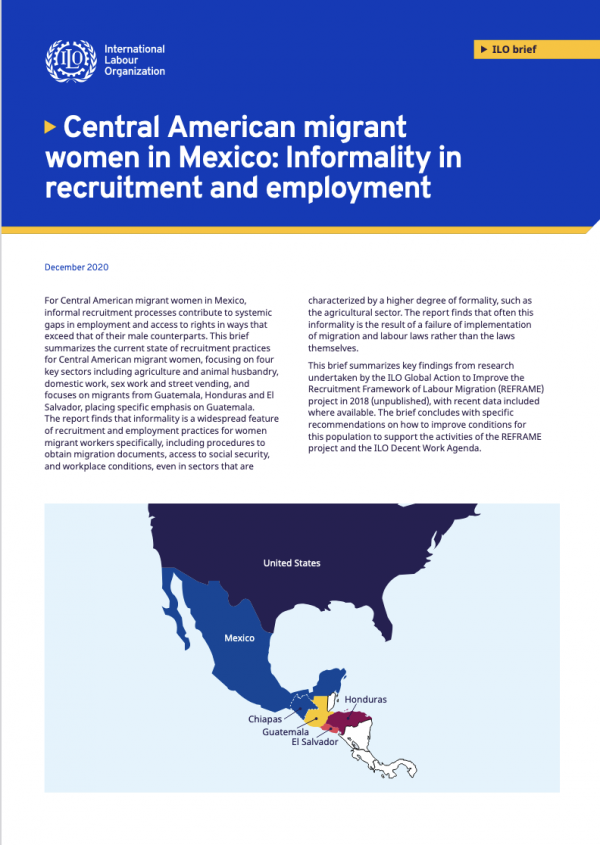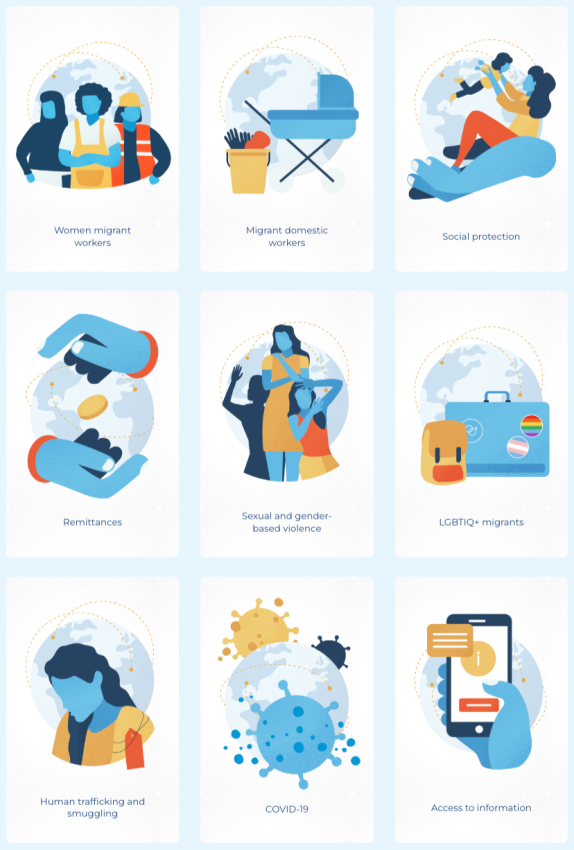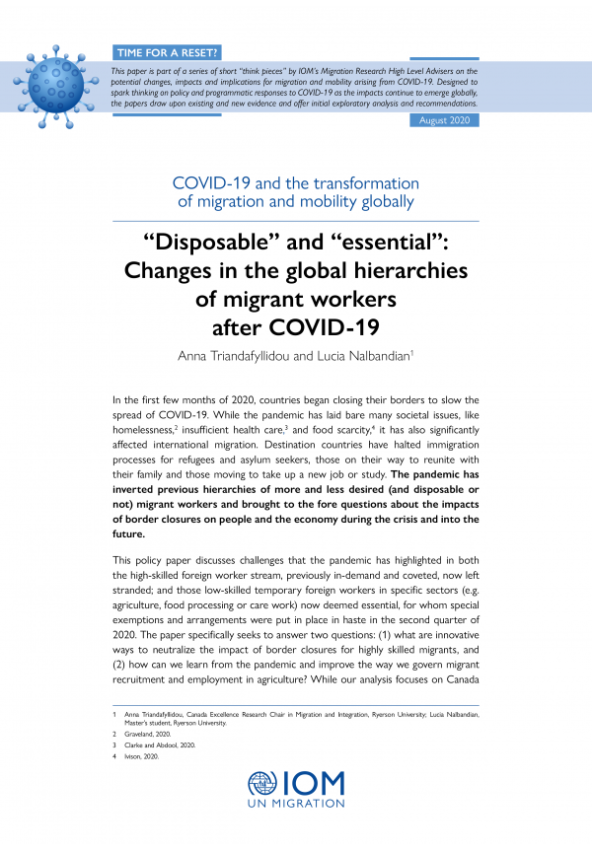Reporting on forced labour and fair recruitment: An ILO toolkit for journalists
This toolkit provides information and advice to media professionals on how to report accurately and effectively on forced labour and fair recruitment. The toolkit includes the Media-friendly glossary on migration.
This toolkit is available in: Arabic, English, French, Spanish.
The toolkit has been adapted to the national context in:
-
Nepal (English)
-
Nigeria (forthcoming)
-
Pakistan (English)
- Uganda (forthcoming)
-
Viet Nam (English, Vietnamese).
Click on each language to open the corresponding toolkit.
Type of document :
Country/Region : , , , , , , ,
Year of publication :
Theme : , ,
The Montreal recommendations on recruitment: A road map towards better regulation
This resource presents policymakers and regulators with practical guidance and ideas to improve regulation and oversight of international recruitment and protection of migrant workers. It covers a broad range of themes, including the following:
a) recruitment fees;
b) licensing and registration of labour recruiters;
c) inspections and enforcement;
d) access to grievance mechanisms and dispute resolution;
e) bilateral and multilateral mechanisms; and
f) migrant welfare and assistance.
The guidance results from a global conference held in Montreal, Canada, that brought together leading experts and practitioners from more than 30 countries around the world. It reflects an important milestone in global efforts to promote ethical recruitment.
Type of document :
Country/Region :
Year of publication :
Theme : , ,
Plan de acción de la Procuraduría de los Derechos Humanos (PDH) para el abordaje integral de la migración laboral y contratación equitativa
Este plan de acción identifica elementos para contribuir a la institucionalización y coordinación de intervenciones sobre migración laboral y contratación equitativa desde un enfoque coordinado entre las distintas unidades de la PDH y desde el liderazgo de la Defensoría de Personas Migrantes.
Type of document :
Country/Region : , , , ,
Year of publication :
Theme : , , ,
Global Study on Recruitment Fees and Related Costs
A global study that examines the laws and policies of 90 countries, as well as numerous bilateral labour agreements and multi-stakeholder initiatives to identify the efforts Member States have made to regulate or prohibit recruitment fees and costs charged to workers. The global study supported the ILO’s adoption of the Definition of Recruitment Fees and Related Costs, which is to be read in conjunction with the ILO’s General Principles and Operational Guidelines on Fair Recruitment.
This Global Comparative Study on Recruitment Fees and Related Costs was prepared ahead of the Tripartite Meeting of Experts on Recruitment Fees and Related Costs, which took place in Geneva from 14 to 16 November 2018. It brings together the findings from five regional reports that examined 90 national government responses, 18 bilateral agreements and 12 multistakeholder initiatives. The analysis of findings provides a clearer picture of how Member States have addressed the issue of recruitment fees and related costs at the policy level. Overall, the report advances ILO’s work on promoting Fair Recruitment, in particular to reduce recruitment fees and related costs paid by workers.
Type of document :
Country/Region :
Year of publication :
Theme : ,
Labour overview in times of COVID-19: Impact on the labour market and income in Latin America and the Caribbean [Second Edition]
The COVID-19 pandemic has generated unprecedented changes in the world of work. While the crisis has affected all workers, migrants and their families, especially those with irregular migration status and/or engaged in informal work, face additional challenges.
In this context, this Briefing Note has three objectives. First, it briefly analyses the labour landscape of migrant and refugee workers in Latin America and the Caribbean between 2010 and 2019. Second, it presents the results of a rapid assessment conducted by the ILO in Latin America and the Caribbean between August and October 2020. The assessment analyses the effects of the COVID-19 pandemic on the labour and socio-economic landscape, and the responses of refugees, asylum-seekers and migrant workers, government authorities, employers' organizations, trade unions and civil society organizations to the new situation. Finally, in the third part, the document proposes recommendations for good governance of labour migration and the socio-economic integration of migrants and refugees in the context of the COVID-19 pandemic.
Type of document :
Country/Region :
Year of publication :
Theme : ,
Trade union action to promote fair recruitment for migrant workers
This brief highlights trade union action to promote and protect fair recruitment for migrant workers through actions including policy advocacy, service provision and outreach.
Type of document :
Country/Region :
Year of publication :
Theme : , ,
10 good practices for a fair recruitment - CIERTO: Agency dedicated to the fair recruitment of agricultural workers
The fact sheets that integrate this document present ten recruitment Good Practices implemented by CIERTO and their relationship to the ILO General Principles and Operational Guidelines. Each one describes its procedure, establishes its direct and indirect benefits and describes its alignment with these General Principles.
With this document, CIERTO seeks to divulge effective and alternative models of labour migration recruitment in compliance with labour rights, laws and regulations that have a strong impact on the recruitment of migrant workers.
It represents a technical cooperation exercise that reflects on efforts to improve fair and ethical recruitment.
Type of document :
Country/Region :
Year of publication :
Theme :
Central American migrant women in Mexico: Informality in recruitment and employment
This brief summarizes key findings from research undertaken by the ILO Global Action to Improve the Recruitment Framework of Labour Migration (REFRAME) project in 2018 (unpublished), with recent data included where available. The brief concludes with specific recommendations on how to improve conditions for this population to support the activities of the REFRAME project and the ILO Decent Work Agenda.
Type of document :
Country/Region :
Year of publication :
Theme :
How migration is a gender equality issue
Explore this interactive explainer produced by UN Women on women migrants and discover 9 impacts of migration on gender:
- 1. Women migrant workers
- 2. Migrant domestic workers
- 3. Social protection
- 4. Remittances
- 5. Sexual and gender-based violence
- 6. LGBTIQ+ migrants
- 7. Human trafficking and smuggling
- 8. Covid-19
- 9. Access to information
Click here to discover the explainer.
Type of document :
Country/Region :
Year of publication :
Theme : , ,
Covid-19 and the transformation of migration and mobility globally - “Disposable” and “essential”: Changes in the global hierarchies of migrant workers after COVID-19
In this paper, Anna Triandafyllidou and Lucia Nalbandian explore how the pandemic has inverted previous hierarchies of more and less desired migrant workers. The paper considers two groups of migrant workers – previously in-demand high-skilled migrant workers and low-skilled temporary migrant workers in sectors now deemed essential – and asks two key questions: 1.) what are innovative ways to neutralize the impact of border closures for highly skilled migrants, and 2.) how can we learn from the pandemic and improve the way that migrant recruitment and employment in agriculture is governed?
This paper is part of a series of short “think pieces” by IOM’s Migration Research and Publishing High-Level Advisers on the potential changes, impacts and implications for migration and mobility arising from COVID-19. Designed to spark thinking on policy and programmatic responses to COVID-19 as its impacts continue to emerge globally, the papers draw upon existing and new evidence and offer initial exploratory analysis and recommendations.
Type of document :
Country/Region :
Year of publication :
Theme :
Subscribe to the Fair Recruitment Initiative Newsletter
Sign up to receive news delivered to your inbox.

